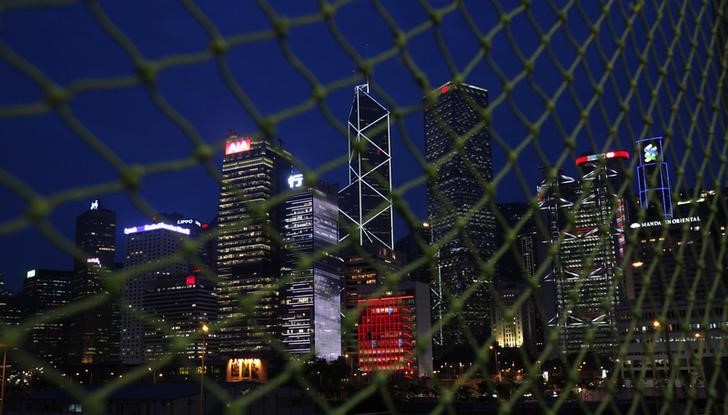* Five booksellers went missing under mysterious
circumstances
* All have now surfaced in mainland China in police custody
* Two held foreign passports; Sweden and Britain denied
access
* Diplomats see looming crisis
* Dual passport holders fear for their safety
By James Pomfret and Greg Torode
HONG KONG/GUANGZHOU, China, Feb 6 (Reuters) - For years Gui
Minhai, a China-born publisher of tabloid books on China's
leaders, had believed he could live and work overseas on a
Swedish passport without fear of persecution by Chinese
authorities, which ban such works on the mainland.
His disappearance, however, from Thailand last October and
his tearful appearance last month on Chinese state television
have undermined confidence among some diplomats in the
protections afforded to hundreds of thousands of foreign
passport holders in Hong Kong and China.
Reuters has confirmed that at least eight governments
including Germany, Japan, Australia, Canada and the United
States have in private raised concerns with Chinese officials,
saying detaining Gui and his associates breaches the "one
country, two systems" formula under which Hong Kong has been
governed since its return to China.
China's Foreign Ministry did not immediately respond to a
faxed request from Reuters to comment on those diplomatic
concerns.
Earlier this week, Chinese Foreign Ministry spokesman Lu
Kang said Hong Kong's autonomy was fully respected, and that as
the territory belonged to China, no foreign officials had the
right to interfere or offer "not really appropriate" comments
about the city.
Publishing literature critical of Beijing is not illegal in
the former British colony, under the freedoms guaranteed as part
of Hong Kong's 1997 handover to China.
Three associates of Gui - who specialised in gossipy books
on Chinese politics - were reported missing late last year, and
were only this week confirmed to be in China and under
investigation for unspecified "illegal activities".
Another, British passport-holder Lee Bo, surfaced in China
last month after vanishing from Hong Kong weeks earlier. Lee's
wife told reporters he had left his travel permit for mainland
China at home.
"I used to ask him if it was safe to be doing what he was
doing," Gui's daughter, Angela, told Reuters by phone from
Britain where she is studying. "And he did mention his Swedish
nationality as something that would ensure his safety."
While Gui said on Chinese television that he had voluntarily
turned himself in, authorities from Thailand have said there was
no record of Gui leaving the country.
Abductions by Chinese agents in Hong Kong would be illegal.
There is no evidence that the five booksellers were abducted.
China's Foreign Ministry said this week that its law
enforcement officials would never do anything illegal,
especially not overseas. CONCERN
A number of governments have expressed concern regarding the
disappearances, which some diplomats fear were abductions by
Chinese agents. On Friday, the European Parliament called for
"the immediate safe release" of all five booksellers.
Fifteen diplomats from the governments interviewed by
Reuters in Hong Kong, Beijing and Guangzhou all showed serious
concern. Some of them warned of a diplomatic crisis. They
declined to be identified due to the sensitivity of the matter.
China's reluctance to provide information and its refusal to
allow Swedish or British envoys access to Gui or Lee - a breach
of international conventions - is fuelling a diplomatic crisis,
several senior Western diplomats said.
"It's another indication that China is not going the right
way in behaving responsibly in terms of international norms,"
said a European diplomat. "But China can do so now because no
one can challenge them."
British Foreign Office staff told Reuters privately that
London is still grappling with how to pressure China on the
issue as it seeks to strengthen economic and trade ties.
In a separate disappearance, a Chinese journalist and
activist, Li Xin, vanished in Thailand last month and has since
reappeared in China under police custody. ARE NOT SAFE"
One key issue arising from the arrests is Hong Kong's large
number of ethnic Chinese who carry foreign passports and the
apparent inability of foreign governments to get access to them
should they get into trouble with China.
Unease has spread among some dual nationals in Hong Kong,
including financial professionals, who are questioning their
future in one of Asia's most international and law-abiding
cities.
"We are not safe," said Sammy Lo, a Hong Kong-born stock
broker who holds a Canadian passport. "They can take you away
wherever you are."
Lo was so unnerved that he said he was speeding up plans to
leave Hong Kong.
Several hundred thousand ethnic Chinese with dual foreign
nationality now live in the city of 7.2 million, led by
Canadians, Americans, British and Australians, according to
figures provided by around a dozen foreign consulates.
China does not recognise dual nationality. Hong Kong does,
but requires a specific declaration that you wish to be treated
as a foreign national. It is unclear if Gui or Lee had formally
asked to be treated as foreigners.
China's Foreign Minister Wang Yi said last month that Lee
was "first and foremost" a Chinese citizen, despite his British
passport. Wang did not elaborate.
While China does not recognise dual nationality, several
countries including the U.S., Canada and Australia say they can
provide consular assistance for dual nationals who enter China
on their passports, though there may be a limit to that
assistance.
A few others including Britain said they can't help,
according to consular agreements with China.
